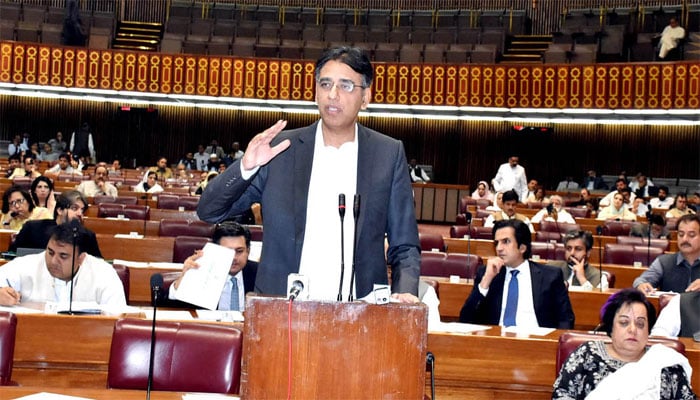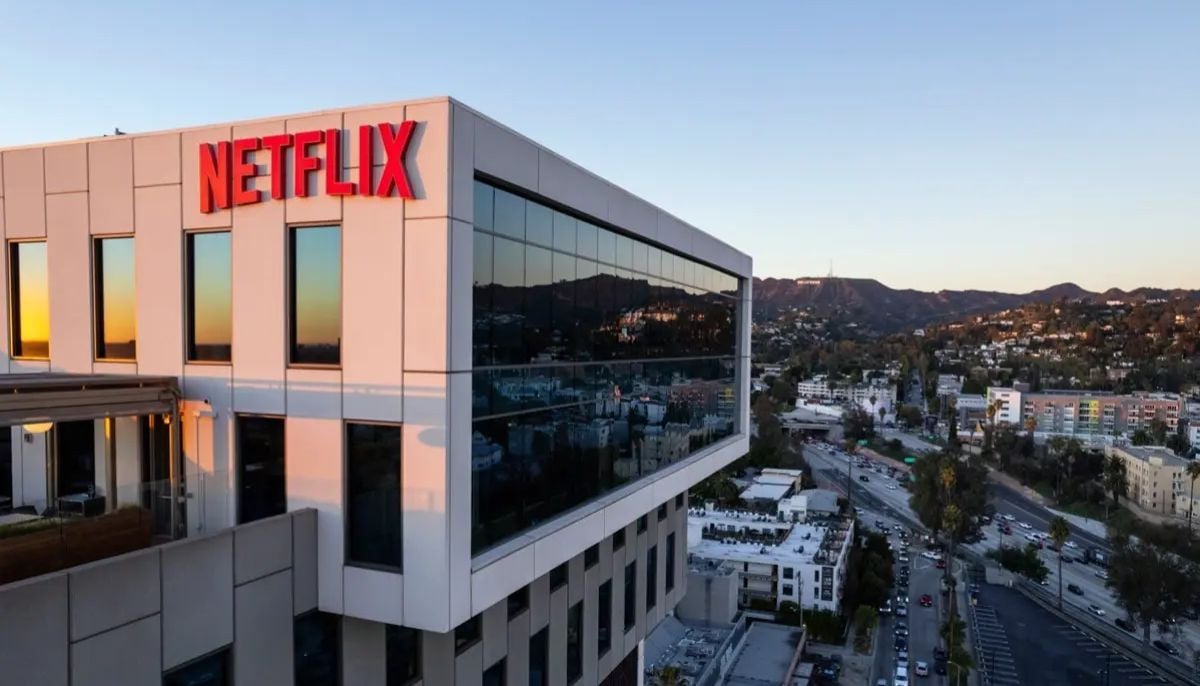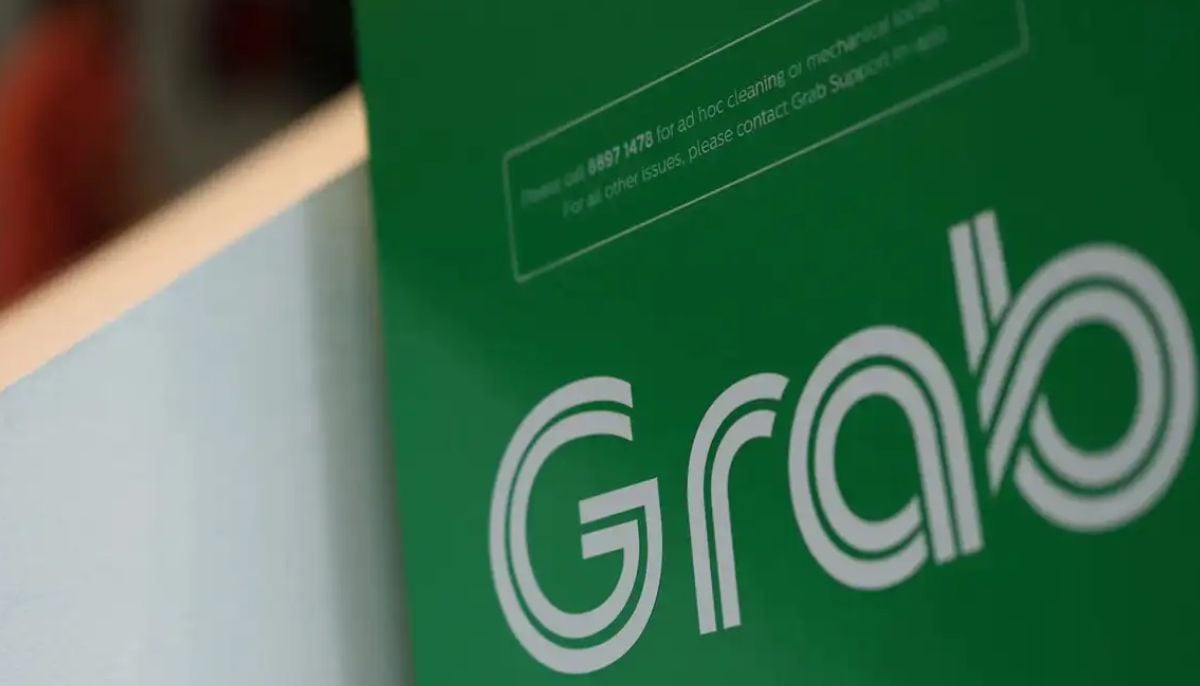PTI presents mini-budget: Asad Umar says ‘difficult times call for difficult measures’
Finance Minister Asad Umar here on Tuesday presented Finance Supplementary (Amendment) Bill 2018 in National Assembly what is being dubbed as the mini-budget.
ISLAMABAD: Finance Minister Asad Umar here on Tuesday presented Finance Supplementary (Amendment) Bill 2018 in the National Assembly what is being dubbed as the mini-budget.
The finance minister began his speech with an assessment of the country’s economic situation, noting that the budget deficit had expanded to 6.6 per cent from 4.1 per cent at the start of the last government’s tenure.
“The most dangerous situation is that if we continue as we have, the budget deficit will expand 7.2 per cent by the end of the ongoing year. This is the assessment of the finance ministry as well as economic experts,” Umar said.
Warning that the country’s foreign exchange reserves had depleted to only two months of import cover, and drawing attention to the fall in the rupee’s value against the dollar, the finance minister said that difficult decisions had to be made or inflationary pressures would build up to the point that they would become painful for the average consumer.
“We need to decide — not the government alone, but the parliament together — if we want to continue like this?” he asked.
“The government overestimated revenues by Rs 350 billion and understated expenditures by Rs 250 billion,” he said.
“In total, there is a Rs 890 billion difference in the projected and budgeted figures for the deficit which we have to arrest.”
“These are difficult times, and they call for difficult measures,” Umar said.
“We need to make sure the burden of our economic measures fall on those who can bear it. The poor are already resource stressed, and we cannot burden them further. Sure, we can seek bailouts but that is not the solution, we can only grow when our economy grows, our industries and our people grow.”
He said, “for farmers, we are ensuring the provision of urea by boosting local production and by importing 100,000 tons from abroad coupled with a Rs 6-7 billion subsidy.”
The minister said, “we will provide Rs 540,000 per family in the form of the Sehat Insaf Card for doctors’ fees and medicines in Fata and Islamabad. We have also instructed the Punjab government to introduce the facility in that province as well.”
Asad said, “we have also directed the release of Rs 4.5 billion for the completion of a housing scheme for the underprivileged.”
“Minimum pension has been increased by 10 pc for EOBI pensioners” he added.
He said, the government had also withdrawn Rs 100 billion extra levy on petroleum products, as it hopefully decreased the price of petroleum products.
The minister said, “the big decision we made yesterday was a Rs 44 billion benefit for the textile industry in Punjab. We will also work to create benefits for the zero-rated sectors in our electricity measures.”
He said, “we will raise Rs 183 billion in additional revenue. Half of this will be raised merely through better administrative procedures that utilise technology to plug leakages in the system. The Federal Board of Revenue has accepted this challenge.”
“The rate of WHT on non-filers has been increased back to 0.6 pc on banking transactions,” he added. He said decision had been made to increase taxes on cigarettes.
He said, “we have also increased some taxes on the rich. We have doubled the duty on cars of 1800cc engine capacity or more. We have also decided to increase the duty on several imported luxury products. Likewise, the duty will be increased on expensive phones.”
“The last government had given sweeping tax relief to all kinds of people, including the most rich. The final decision we’ve taken is that we’ll maintain the Rs1,200,000 limit on exemption. We are also maintaining the tax rate for those earning between Rs 100,000 to Rs 200,000. For all categories above that, we are increasing the tax rate that was applicable in May, but it will remain lower than what it was last year. We hope that the people who have the means will not oppose us on this” he added
Asad said, “we are asking the privileged to sacrifice for the sake of Pakistan, we have also decided to withdraw certain tax exemptions from prime ministers and ministers,”.
The minister said “Rs 661 billion were spent on development last year, and we will spend Rs 725 billon this year. Out of this, we will be spending Rs 50 billion on development in Karachi. This is a joint venture between the federal and Sindh governments.”
“We have also identified infrastructure priorities for the National Highway Authority, on which we will spend Rs 100 bln. We will spend another Rs 500 bln on PSDP”, he added.
The minister said that he was sure past governments had done whatever they believed was necessary for the benefit of the country.
Umar said the nation collectively needed to acknowledge that those measures had not worked.
Promising that he would uphold and continue with the projects introduced by past governments — especially the China Pakistan Economic Corridor and dams on which work is ongoing — the finance minister stressed that the economy’s success meant parliament’s success.
“This nation was given to us by God. There is so much potential in this country, and we will, God-willing, take it to new heights.”
In the five-year term of the PML-N government, foreign debt increased by 34 billion dollar, while foreign exchange reserves continued to decline speedily, Umar recalled.
He further said that the depleting foreign exchange reserves had led to the Pakistan rupee’s depreciation.
-
BTC price today: Bitcoin sinks below $65K on trade uncertainty
-
Tesla expands Cybertruck lineup with affordable model in US, slashes Cyberbeast price to boost demand
-
Uber enters seven new European markets in major food-delivery expansion
-
Will Warner Bros finalize deal with Paramount or stays loyal with Netflix's offer?
-
$44 billion Bitcoin blunder: Bithumb exchange apologizes for accidental payout
-
Global memory chip crunch puts spotlight on Apple; Will iPhone become more pricey?
-
Bitcoin plummets toward $60,000 as investors dump risky bets
-
Bitcoin crashes below $63K as regulatory pressure and market fears grow












